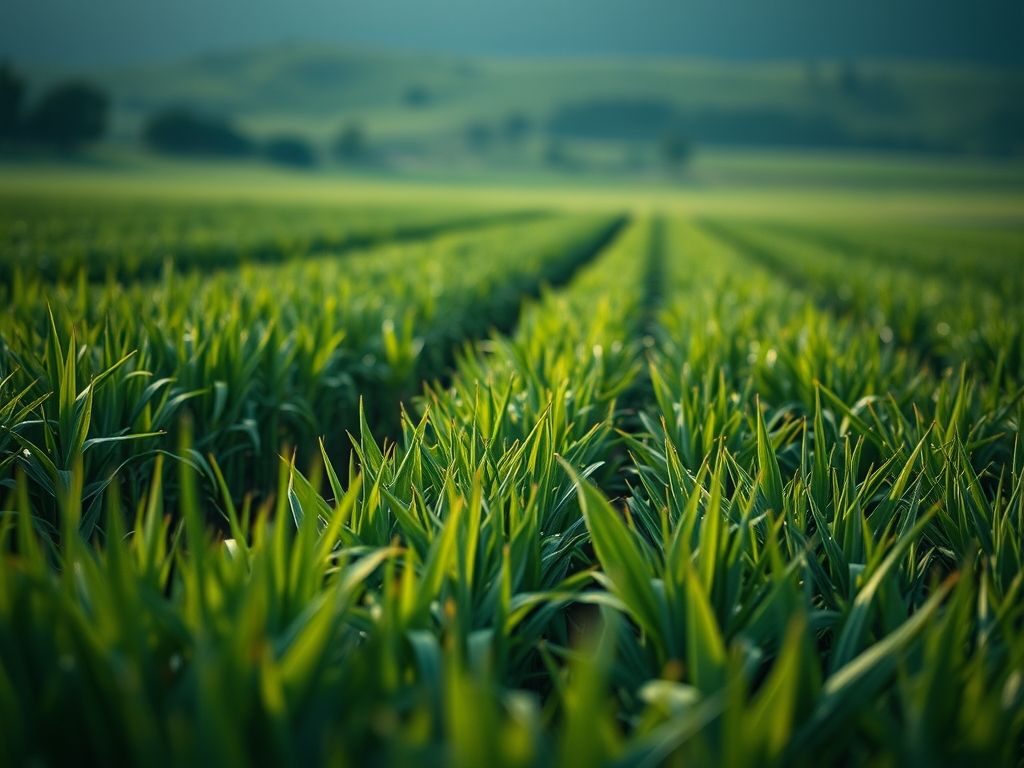AI in Agriculture: A Comprehensive Glossary
Artificial Intelligence (AI) in agriculture refers to the integration of advanced computational techniques to enhance farming practices and productivity. This innovative technology uses data-driven insights to optimize various agricultural processes, from crop management to resource allocation.
Introduction: The Importance of AI in Agriculture
The agricultural sector is facing unprecedented challenges, including climate change, population growth, and resource scarcity. AI in agriculture offers solutions that can revolutionize how we approach food production. By leveraging machine learning, data analytics, and robotics, farmers can make informed decisions that lead to increased efficiency and sustainability.
Key Applications of AI in Agriculture
AI in agriculture encompasses a wide range of applications that enhance operational efficiency. Here are some critical areas where AI is making a significant impact:
- Precision Farming: Utilizing AI to analyze soil health, weather patterns, and crop performance allows farmers to optimize resource use, improving yield while minimizing waste.
- Pest and Disease Detection: AI algorithms can analyze images captured by drones or mobile devices to identify pests and diseases early, enabling timely intervention.
- Automated Machinery: Robotics and AI-driven machinery can perform tasks such as planting, harvesting, and weeding, significantly reducing labor costs and increasing productivity.
- Supply Chain Optimization: AI tools can forecast demand, optimize logistics, and enhance inventory management, ensuring that fresh produce reaches consumers efficiently.
How AI is Transforming Crop Management
Crop management is one of the most critical aspects of agriculture. AI technologies are enabling farmers to monitor and manage their crops more effectively:
- Drone Technology: Drones equipped with AI can capture aerial imagery of fields, helping farmers assess crop health and identify areas needing attention.
- Soil Analysis: AI can analyze soil samples and provide insights on nutrient levels, helping farmers tailor their fertilization strategies.
- Weather Prediction: AI models can predict weather patterns with high accuracy, allowing farmers to make strategic decisions about planting and harvesting.
Benefits of Implementing AI in Agriculture
The benefits of implementing AI in agriculture are manifold:
- Increased Productivity: AI technologies enable farmers to maximize yield by optimizing inputs and managing resources effectively.
- Cost Reduction: Automation and data analytics reduce the need for manual labor and minimize waste, leading to lower operational costs.
- Enhanced Sustainability: AI helps in making farming practices more sustainable by reducing chemical use and improving resource management.
- Data-Driven Decision Making: Access to real-time data enables farmers to make informed decisions that positively impact their operations.
Practical Applications of AI in Daily Farming Operations
Farmers can implement AI technologies in their daily operations through various practical applications:
- AI-Powered Mobile Apps: Several applications enable farmers to monitor their crops, manage irrigation, and receive alerts about pest infestations.
- Smart Irrigation Systems: AI-driven systems can adjust water usage based on real-time data, ensuring that crops receive the right amount of hydration without wasting resources.
- Predictive Analytics: Farmers can use AI to forecast crop yields and market trends, allowing them to plan their planting and sales strategies more effectively.
Related Concepts in AI and Agriculture
Understanding AI in agriculture also involves familiarizing oneself with related concepts:
- Machine Learning: A subset of AI that enables systems to learn from data and improve over time without explicit programming.
- Big Data: The vast amounts of data generated in agriculture can be analyzed using AI to derive actionable insights.
- Robotics: Robotics in agriculture includes automated systems that perform tasks traditionally done by human laborers, increasing efficiency.
Conclusion: The Future of AI in Agriculture
AI in agriculture is not just a trend; it represents a fundamental shift in how we produce food. As technology continues to evolve, the integration of AI will lead to smarter, more sustainable farming practices that can help meet the global food demand while preserving our planet. By embracing these innovations, farmers can enhance productivity, reduce costs, and contribute to a more sustainable future.
Reflection and Call to Action
As a programmer or web developer interested in the agricultural sector, consider how you can leverage AI tools and technologies in your projects. Whether it’s developing applications that help farmers analyze their data or creating platforms for sharing best practices, there are numerous opportunities to contribute to this transformative field.









